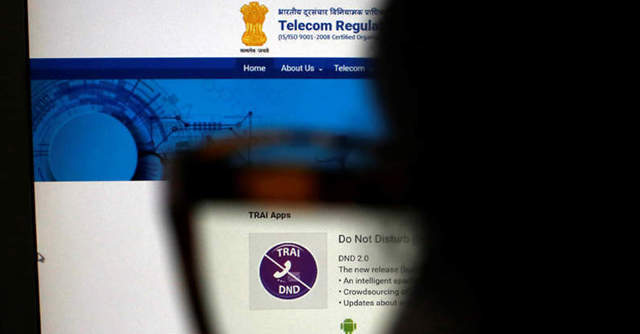
TRAI releases responses on CSP consultation paper, stakeholders cry regulatory overlap


The Telecom Regulatory Authority of India (TRAI) recently released stakeholder comments that came in response to its consultation paper on cloud services, which was published in October.
About 20 stakeholders, ranging from industry associations, consumer advocacy groups, cloud service providers (CSPs) to internet companies are of the opinion that there are already plenty of mechanisms for cloud services regulation in the country.
The cloud market in India is expected to grow to $7 billion by 2022, a recent report from industry body Nasscom said.

In October, TRAI had released a consultation paper to decide on the terms and conditions for setting up a not-for-profit industry body for cloud service providers(CSPs) among other issues.
According to a public policy think tank, Telecom User Group of India (TUGI), cloud services sector in India is regulated by existing legal frameworks like the Information Technology Act, 2000 (IT Act), the Information Technology (Reasonable Security Practices and Procedures and Sensitive Personal Data or Information) Rules, 2011 (SPDI Rules).
This is in addition to the general and sector-specific regulation in the likes of telecom sector’s uniform license and third-party characterisation of CSPs by finance regulators Reserve Bank of India (RBI) and Insurance Regulatory and Development Authority of India (IRDAI).

The government also launched its own cloud service called ‘MeghRaj,’ through which the Ministry of Electronics and Information Technology (MeiTY) has issued several guidance documents for governmental agencies and departments that are seeking to adopt or migrate to MeghRaj.
CSPs in India should not be subject to regulation by the Department of Telecommunications (DoT) or the TRAI, directly or indirectly, since they are subject to existing laws and governed by the MeitY, the industry body Asia Internet Coalition (AIC) said in its responses.
AIC is an industry association that was formed by eBay, Facebook, Google, and Yahoo to promote the understanding and resolution of internet policy issues in the Asia Pacific region.

The proposed regulation of CSPs is likely to be unworkable, according to comments from the information and technology industry lobby group Nasscom.
“The market for industry association is based on the value that the association delivers to the industry. Any statutory based association is likely to harm the voluntary market for associations. This is more so if only one such association is promoted by the government. Moreover, industry associations adopt code of conduct on a voluntary basis. A government-supervised code of conduct is likely to change the basic voluntary characteristic of associations,” it said.
Any regulation will in turn only hurt the Indian government’s flagship ‘Digital India’ programme, and the goal of creating a $1 trillion digital economy by 2025, the body further added.

The Telegraph Act 1885 does not empower DoT to fix any entry or recurring fee for CSPs and it should be left to the industry bodies to determine such fees based on the services provided by the industry bodies to its member, the Cellular Operators Association of India (COAI) said in its set of comments.
The sentiments on regulatory overlap were ubiquitous among stakeholders.
“We submit that the cloud service providers (“CSPs”) in India should not be subject to regulation by the Department of Telecommunications (“DoT”) or the Telecom Regulatory Authority of India (“TRAI”), directly or indirectly,” the world’s largest cloud service provider Amazon Web Services said in its response.

However, home-grown telecom operator Reliance Jio Infocomm had comparatively limited reservations towards regulations in the sector.
“We are supportive of a light touch regulation for cloud services and the implementation of the same through industry bodies, as envisaged by the Authority. Although we would like to stress that there should not be any overlapping regulatory oversight from multiple ministries and associated regulatory bodies,” the company said.
